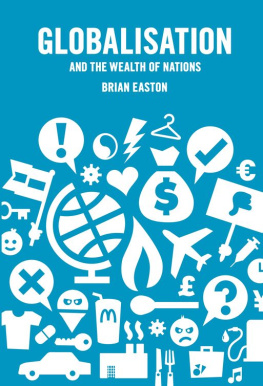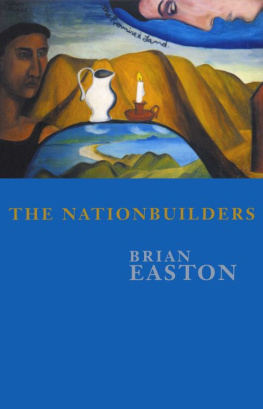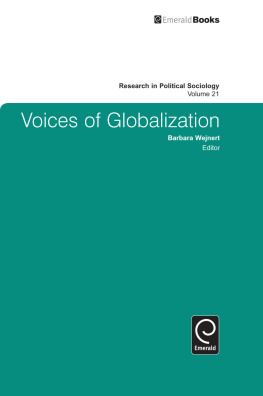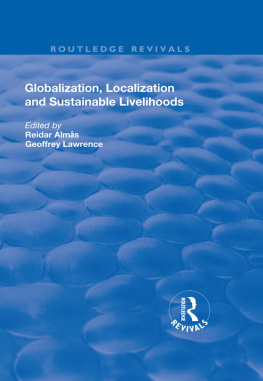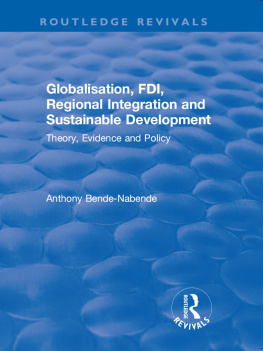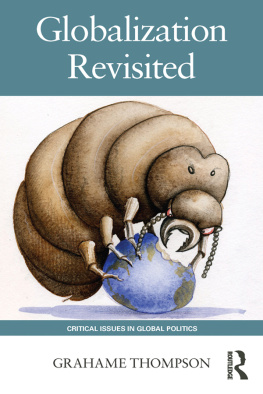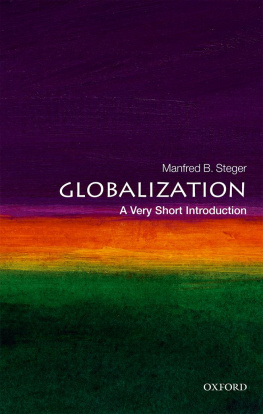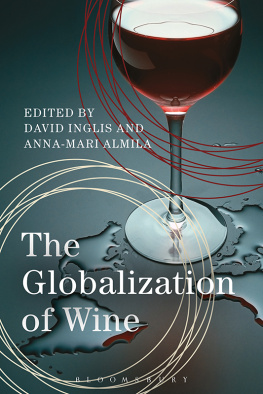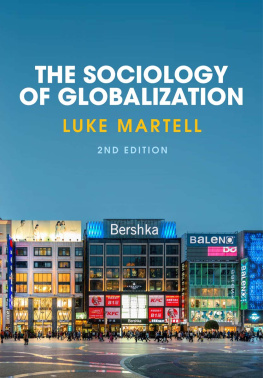Contents
While on a two-month stint in Boston collecting material for this book, I was faced with the reality of distance. My mother died in Christchurch. I knew when I left New Zealand that she was dying, but we expected her to still be with us when I got back. She went earlier.
My family contacted me when it was clear she was near the end. Should I go home? Despite the diminution of distance that this book describes, it would have taken at least 60 hours, given the flying time and schedules. There was a good chance that she would be gone before I got back. So I stayed put, keeping in touch via telecommunications. Phones had their difficulties, for the common windows between Boston and Christchurch are limited, and anyway I could not see her. The internet proved more effective, if less intimate.
If the situation had occurred twenty years earlier I would have been in a worse position: phones and airfares were more expensive, and there was no significant internet. My real luck, though, was to have those extra twenty years of Mum. Perhaps in twenty years time some reader will face a similar situation, with lower distance costs: direct New York to Christchurch flights; video streaming. But they may still decide to stay rather than return.
As I tried to lead as normal a life as possible, continuing to work on this project in Boston while pondering what was happening in Christchurch, I realised that there was an aspect of distance which this book hardly touches upon: intimacy the desire to see, to hear directly, to touch, to smell. Sure, we can move human beings to enable such intimacy, and these movements are much more feasible today than they were in the past. Even so, this book has not much about the need to be near.
It would be sentimental an emotion for which economics texts are not noted to dedicate this book to my mother. Instead, I would like to dedicate it to the intimacy which makes us human. I first learned of this from Mum.
On our breakfast table lies each morning the toil of Europe, Asia, and Africa and the isles of the sea; we sow and spin for unseen millions, and countless myriads weave and plant for us; we have made the earth smaller and life broader by annihilating distance, magnifying the human voice and the stars, binding nation to nation, until today, for the first time in history there is one standard of human culture as well in New York as in London, in Cape Town as in Paris, Bombay as in Berlin.
William Edward Burghardt DuBois, Address to the graduating class at Fisk University, Nashville, 1898
[I]n August 1914 [t]he inhabitant of London could order by telephone, sipping his morning tea in bed, the various products of the whole earth, in such quantity as he might see fit, and reasonably expect their early delivery upon his doorstep; he could at the same moment and by the same means adventure his wealth in the natural resources and new enterprises of any quarter of the world, and share, without exertion or even trouble, in their prospective fruits and advantages; or he could decide to couple the security of his fortunes with the good faith of the townspeople of any substantial municipality in any continent that fancy or information might recommend. He could secure forthwith, if he wished it, cheap and comfortable means of transit to any country or climate without passport or other formality, could despatch his servant to the neighbouring office of a bank for such supply of the precious metals as might seem convenient, and could then proceed abroad to foreign quarters, without knowledge of their religion, language, or customs, bearing coined wealth upon his person, and would consider himself greatly aggrieved and much surprised at the least interference. But, most important of all, he regarded this state of affairs as normal, certain, and permanent, except in the direction of further improvement, and any deviation from it as aberrant, scandalous, and avoidable.
John Maynard Keynes, The Economic Consequencesof the Peace, Macmillan, London, 1919
In the nineteenth century a vigorous debate took place among those who disliked the trends of the day trends which they thought of as industrialisation , but which we can now see as the early stage of globalisation. The French anarchist, Pierre-Joseph Proudhon, appalled by the human costs of industrialisation, argued for a reversion to an earlier rural way of life an Arcadia which had never actually existed.
But was there an alternative to retreat? Must the world surrender to the forces of globalisation, with helots toiling in the fields and in dark satanic mills? The best-known rival vision came from Karl Marx, whose thinking is often misrepresented by his twentieth-century followers. Marx argued that industrialisation was an essentially progressive if unrelenting force, even though it caused misery to workers caught up in the transformation. Marx argued that the transformation would ultimately benefit workers through the creation of a state in which they would enjoy the fruits of their labour.
With hindsight, we can see that Marx was broadly correct. Sure, no communist state has come into existence; Marx himself was quite vague about what this would look like. But ultimately the workers of the world are better off from industrialisation. Had they retreated to the nostalgia of Proudhons Arcadia, they would not be, for they would be isolated from the benefits of the technology which drove globalisation and industrialisation. Admittedly, there has not been much equity in the sharing of the fruits of the transformation. Among those who have benefited least are those in Africa, but even here, the material standard of living is about three times higher today than it was two centuries ago.
So the challenge is not how to stop globalisation as Marx foresaw, that was not a feasible option (and will not be, for as long as the costs of distance continue to fall). Rather it is how to harness it for the common good. That was the challenge our nineteenth-century ancestors took up, despite the awful effects of the industrialisation of the day. Thanks to them, we live in a much more benign society than they did. That is the challenge and the prospect for this bout of globalisation, too: to harness the forces of globalisation, rather than to deny them or pretend we can reverse them.
Marxs last thesis on Feuerbach famously asserts that philosophers have only interpreted the world in various ways; the point is, to change it. The task I have set myself in this book is to provide an interpretation of globalisation for those who wish to understand it.
Towards the end of the twentieth century, the word globalisation became very fashionable. By 2007 it appeared in one form or another in almost fifteen million websites, while one internet bookshop stocked more than 5000 books with the word in the title. Why add yet another one? For two reasons: time and place.
This book will be read for a long time to come. It is neither coincidental nor a promotional gimmick that the title alludes to Adam Smiths most famous book, one still remembered after more than two centuries. That is because he tackled contemporary issues by providing an analytic framework and insights which are still robust. This is not a book which claims that globalisation has just started. It began shortly after The Wealth of Nations, and we can learn from those two hundred years. This book offers not dramatic facts and confident predictions, but an analytical framework enhanced by Adam Smiths successor economists enabling the reader to think about current and future issues. So yes, this is a textbook, but one written for informal as well as formal students, with the objective of helping them think about the changing world economy and its political and social implications.

